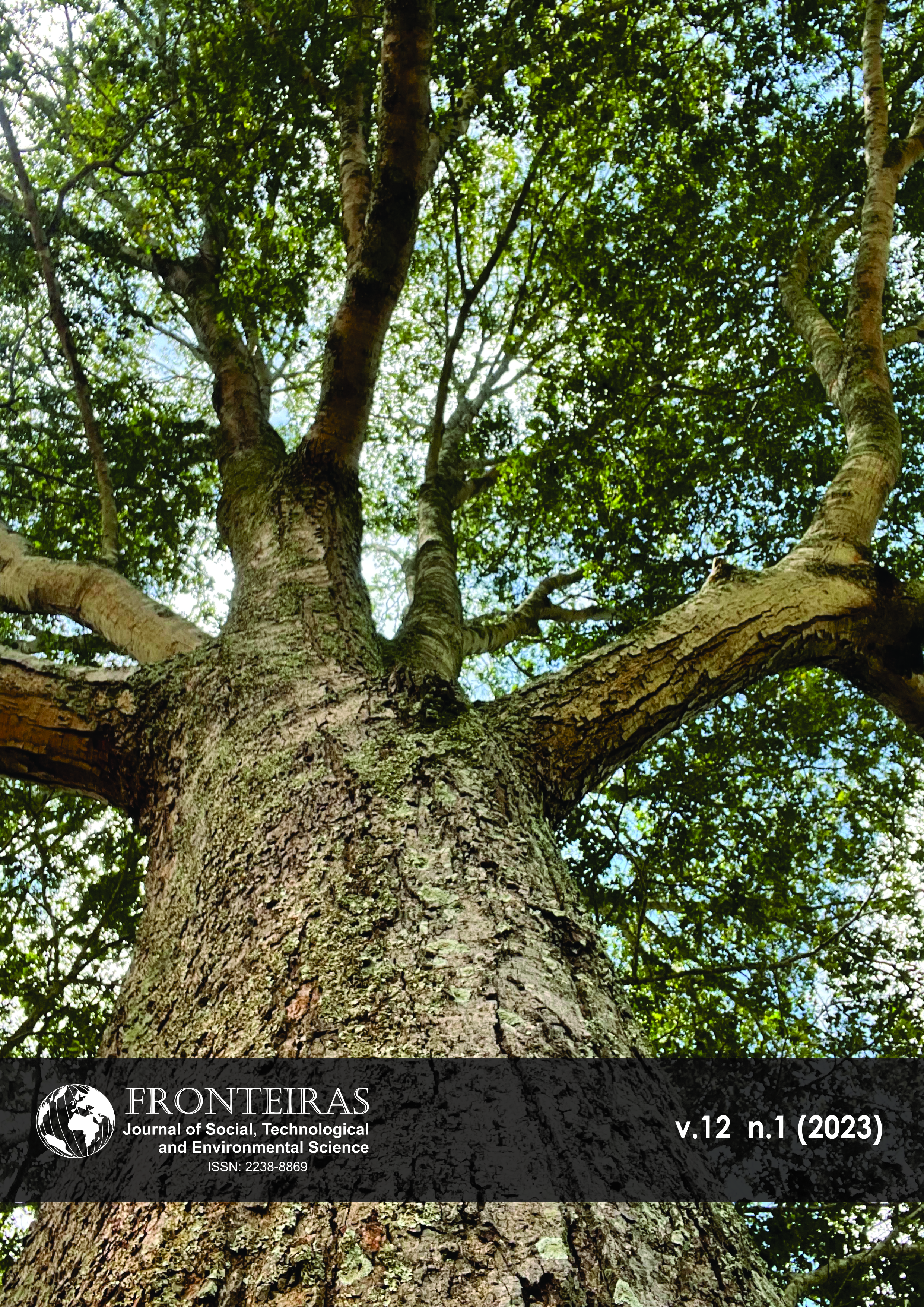Preferências na Escolha das Termas em Portugal
DOI:
https://doi.org/10.21664/2238-8869.2023v12i1.p227-247Palavras-chave:
termalismo, turismo de saúde e bem-estar, estâncias termais, águas termaisResumo
O termalismo é uma atividade turística, que vem desde tempos imemoriais, e que é uma importante alavanca para o desenvolvimento de localidades de baixa densidade, diminuindo desta forma as assimetrias regionais. O objetivo deste estudo é caraterizar o perfil dos aquistas que frequentaram as termas de diferentes pontos em Portugal, em tempo de COVID-19, e os fatores preponderantes na escolha dos serviços termais. O estudo é de natureza quantitativa, tendo sido elaborado um inquérito, que analisou os fatores determinantes na escolha das termas em Portugal durante este período. Observou-se que os fatores preponderantes na escolha das termas são a qualidade das instalações e dos serviços, a procura de descanso, a melhoria da saúde e da qualidade de vida e a procura de socialização e cultura. Espera-se que este estudo contribua para evidenciar o perfil do aquista e as suas preferências, pelas diversas estâncias termais.
Referências
ATP 2020. Relatório Estatístico 2019. Associação das Termas de Portugal.
Associação Portuguesa dos Recursos Hídricos (APRH). (2014). A água subterrânea. Available form: https://www.aprh.pt/aguaeresiduos2014/pdf/programa_final.pdf.
Boekstein M 2014. Tourism, health and the changing role of thermal springs – should South Africa reposition Its thermal spring tourism product. African Journal of Hospitality, Tourism and Leisure, 3 (2): 1‑9.
Cantista P 2008. O Termalismo em Portugal. Anales de Hidrologia Médica, 3(1): 79-107.
Carvalho A, Pinto J, Tavares F 2020. Turismo – Desafios e Perspetivas. Edições Afrontamento, Porto.
Cavaco C 2005. A diferenciação regional da função turística. Geografia de Portugal, Parte XI, CAVACO, Carminda, O Turismo e as Novas Dinâmicas territoriais, Círculo de Leitores, Rio de Mouro, p. 385-399.
Cunha L 2006. A procura turística. In L. Cunha, Economia e política do turismo. Editorial Verbo, Lisboa.
Didascalou E, Lagos D 2009. Wellness tourism: evaluating destination attributes for tourism planning in a competitive segment market. Tourismos, 4(4): 113-126. https://doi.org/10.26215/tourismos.v4i4.142
DGEG 2022. Direção Geral de Energia e Geologia. Available form: https://www.dgeg.gov.pt/pt/areas-setoriais/geologia/recursos-hidrogeologicos/exploracao-de-aguas-minerais-naturais/termalismo/
Fazenda N, Ladeiras A, Vieira T, Barbosa D. 2009. Programa de Ação de Enfoque Temático Turismo de Saúde e Bem estar para o Porto e Norte de Portugal – Agenda Regional de Turismo, Lisboa.
Fernandes, J. (2006). Thalassa, Thermae, Spa – Salute Per Aqua. Coleção Viver Melhor, Plátano Editora, Lisboa.
Fletcher R, Murray I, Blanco-Romero A, Blázquez-Salom M 2019. Tourism and degrowth: An emerging agenda for research and praxis. Journal of Sustainable Tourism, 27(12): 1745–1763. https://doi.org/10.1080/09669582.2019.1679822
George D, Mallery P. 200). SPSS for Windows step by step: A simple guide and Reference. 11.0 update (4th ed.). Allyn & Bacon, Boston.
Guerra R 2016 Turismo de saúde e bem-estar: Estratégia de desenvolvimento local para as Caldas da Cavaca. Tese de Doutoramento, Universidade de Coimbra, Coimbra, Portugal.
Global Wellness Institute 2020. History Of Wellness - Global Wellness Institute. Available form: https://globalwellnessinstitute.org/industry-research/history-of-wellness/.
Gonçalves EC, Guerra RJ 2019. O turismo de saúde e bem-estar como fator de desenvolvimento local: uma análise à oferta termal portuguesa. Revista de Turismo y Património Cultural, 17(2): 453-472. https://doi.org/10.25145/j.pasos.2019.17.030
Hair Jr J F, Black WC, Babin BJ, Anderson RE 2005. Multivariate Data Analysis. (7th ed.). Upper Saddle River: Prentice Hall.
Kelly C 2010. Analysing wellness tourism provision: A retreat operators’ study. Journal of Hospitality and Tourism Management, 17(1): 108–116. https://doi:10.1375/jhtm.17.1.108.
Leandro M, Leandro A 2015. Da saúde e bem-estar/mal-estar ao termalismo. Sociologia: Revista da Faculdade de Letras da Universidade do Porto, XXX: 75–96.
Lourenço F 2012. O posicionamento do turismo de saúde e bem-estar. O caso das Termas de São Pedro do Sul. Dissertação de Mestrado, Instituto Politécnico de Viseu, Viseu, Portugal.
Magariños A 2020. Utilidades preventivas y terapéuticas de la terapia termal respiratoria, riesgos y beneficios. Webinar – Termatalia. Availabe at: https://galatermal.es/webinar-utilidades-preventivas-y-terapeuticas-de-la-terapia-termal-respiratoria-riesgos-y-beneficios/.
Marôco J 2018. Análise Estatística com o SPSS Statistics. 7. ed. ReportNumber, Lisboa.
Medeiros C, Cavaco C 2008. Turismo de saúde e bem‑estar: termas, spas termais e talassoterapia. Universidade Católica Portuguesa, Lisboa.
Nahrstedt W 2004. Wellness: a new perspective for leisure centers, health tourism, and spas in Europe on the global health market. In C. Weiermair, K.; Mathies (Ed.), The tourism and leisure industry: shaping the future (pp. 181‑198). New York: Haworth Hospitality Press.
Olivares DL, Bonfill JB 2004. Propuestas de desarrollo turístico integrado para un destino maduro de turismo de salud: Benassal. Cuadernos de Turismo, (13): 27-50. https://revistas.um.es/turismo/article/view/18881
Ortiz C, Pacheco A, Jatzire G 2016. Turismo Termal En La Ruta De La Salud, En Michoacán: Potencial De Desarrollo Regional. Región Y Sociedad, 28(65): 149-186.
Pestana M, Gageiro J., 2014. Análise de Dados para Ciências Sociais: A Complementaridade do SPSS. 6ª Edição. Edições Sílabo, Lisboa.
Pinto HG, MangorrinhaJ 2009. O desenho das termas: história da arquitetura termal portuguesa. Ministério da Economia e Inovação, Lisboa.
Quintela M 2004. Saberes e práticas termais: uma perspetiva comparada em Portugal (Termas de S. Pedro do Sul) e no Brasil (Caldas da Imperatriz). História, Ciências, Saúde, 11: 239‑260.
Ramos A 2005. O Termalismo em Portugal: dos fatores de obstrução à revitalização pela dimensão turística. Tese de Doutoramento, Universidade de Aveiro, Aveiro, Portugal.
Tavares FO, Almeida L, Pinto A, Tavares VC (2022). The Role of Stakeholders in Thermal Tourism: A Bibliography Review. In: Ratten, V., Braga, V. (eds) Stakeholder Entrepreneurship. Springer, Singapore. https://doi.org/10.1007/978-981-16-7091-6_4
UNWTO 2018. World Tourism Organization and European Travel Commission, “Exploring Health Tourism – Executive Summary,” UNWTO, p. 16, 2018. Available form: https://www.eunwto.org/doi/pdf/10.18111/9789284420308.
Vasileiou M, Tsartas P 2009. The wellness tourism market in Greece - an interdisciplinary methodology approach. Tourismos, 4(4): 127-144. https://doi.org/10.26215/tourismos.v4i4.143
Downloads
Publicado
Como Citar
Edição
Seção
Licença
Esta revista oferece acesso livre imediato ao seu conteúdo, seguindo o princípio de que disponibilizar gratuitamente o conhecimento científico ao público proporciona maior democratização mundial do conhecimento.
A partir da publicação realizada na revista os autores possuem copyright e direitos de publicação de seus artigos sem restrições.
A Revista Fronteiras: Journal of Social, Technological and Environmental Science segue os preceitos legais da licença Creative Commons - Atribuição-NãoComercial 4.0 Internacional.


